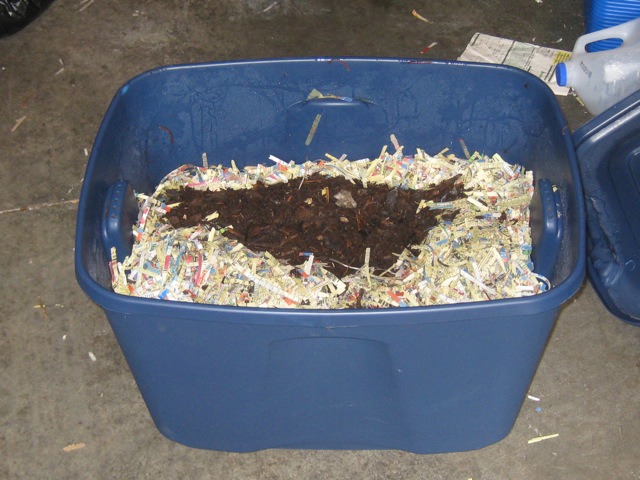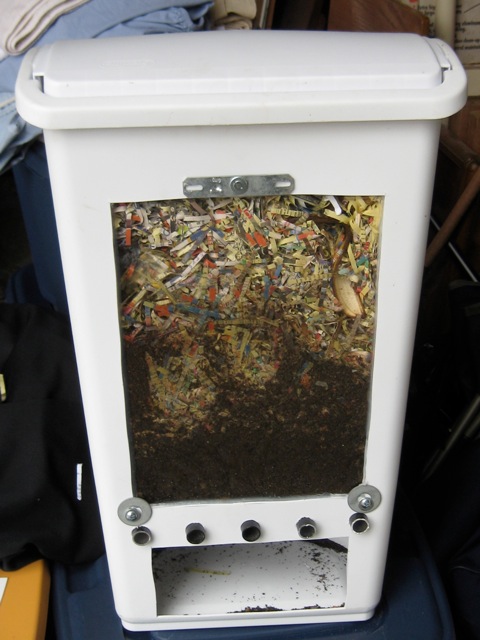
 7
7




"Captain Oveur, white courtesy phone. Captain Oveur whi..."
"No, the white phone."
 7
7




Invasive plants are Earth's way of insisting we notice her medicines. Stephen Herrod Buhner
Everyone learns what works by learning what doesn't work. Stephen Herrod Buhner

 7
7





 6
6




Some places need to be wild











 2
2




Anne Miller wrote:Welcome back.
It sounds to me that Bokashi Composting would be what might work for you:
https://permies.com/t/11246/bokashi
https://permies.com/t/78784/Bokashi-Composting
https://permies.com/t/188531/composting/Bokashi
"Captain Oveur, white courtesy phone. Captain Oveur whi..."
"No, the white phone."











 2
2




Christopher Weeks wrote:You might also consider a worm bin. Or one of those enclosed compost tumblers.











 3
3




Eric Hanson wrote:Hello Faeryn, and welcome back!
Count me down as another vote for worm composting or vermicomposting as it is otherwise known. I wish that I could pass down wisdom about this method, but I tried once and failed miserably, but don’t let that stop you! I can tell you that I let my bin get too wet and I did not have drainage holes in it—big no-no’s! Mine made a stinky mess which is what happens when you (I) don’t put in drain holes and let it get too wet. Also, being too wet will attract fruit flies. So what I am trying to say is that mine failed miserably for basically one simple reason for which I was warned and should have been more aware. I strongly suspect that if you tackle this one issue that you will be very successful in worm composting.
Good luck in whatever you do, and by all means, if you have ongoing questions, please ask. Also, please keep us up to date!
Eric
"Captain Oveur, white courtesy phone. Captain Oveur whi..."
"No, the white phone."











 4
4





"Captain Oveur, white courtesy phone. Captain Oveur whi..."
"No, the white phone."












 7
7















 3
3




Christopher Weeks wrote:Depends on scale and timing. I know a guy who freezes scraps until he's ready to feed the worms (every two weeks or something) But your freezer might fill up. I don't really think dehydrating them is economical. I'd just tuck them into the mulch, but I've never had a real rodent problem, so I might feel different if that were an issue for me.
 10
10




Weeds are just plants with enough surplus will to live to withstand normal levels of gardening!--Alexandra Petri
 3
3




Living free starts with understanding ones own emotions and emotion affects and controls us.
 5
5




Aspirations: She seeks wool and flax, considers a field and buys it, girds herself with strength, opens her mouth with wisdom, and does him good all the days of her life. (pieces of Proverbs 31, NKJV)











 5
5




Mk Neal wrote:Faeryn, and a cheap rodent proof solution that I have been using to compost for some years now is a galvanized trashcan with quarter inch holes drilled in it for aeration. More durable and less expensive than most of the plastic composter dohickeys available.
"Captain Oveur, white courtesy phone. Captain Oveur whi..."
"No, the white phone."











 3
3




Harry Soloman wrote:Check out geme composters. Yes, it is a bit different than what we typically consider and the cost is stupid, but this gets rid of most things in a day. It's scary fast. I mix in with worm food for my worms and my worm bin is on steroids. A little goes a long way. I also use it to make a leaf mold tea when I don't have leaf mold and works similarly and has done wonders. Especially in compacted soil areas, but I also add a few other things for that, too.
For me, this is as if bokashi became bokashi 2.0
This is the site:
https://www.geme.bio/?gad_source=1&gclid=Cj0KCQiA_9u5BhCUARIsABbMSPtYNs7QEcOOVjvjBSkgAmF_KIuC1gfsfZPkjlCxKrYDnIerHsgTiOgaAvTeEALw_wcB
"Captain Oveur, white courtesy phone. Captain Oveur whi..."
"No, the white phone."











 4
4




Sara Hartwin wrote:I'm on a bokashi adventure myself, so here's another vote for that method of dealing with kitchen scraps. I'm documenting my progress over at this thread. I included several resources (both on Permies and elsewhere) which helped my understanding of the method.
"Captain Oveur, white courtesy phone. Captain Oveur whi..."
"No, the white phone."











 5
5




"Captain Oveur, white courtesy phone. Captain Oveur whi..."
"No, the white phone."
 2
2




Invasive plants are Earth's way of insisting we notice her medicines. Stephen Herrod Buhner
Everyone learns what works by learning what doesn't work. Stephen Herrod Buhner
 5
5






Castaway Compost - Yer Trash be Treasure! castawaycompost.com
 6
6




Moderator, Treatment Free Beekeepers group on Facebook.
https://www.facebook.com/groups/treatmentfreebeekeepers/
















 2
2




Anne Miller wrote:Similar to something Christopher said, years ago I saved all my veggie scraps to make broth.
And then there is scrap cooking:
https://permies.com/t/216892/Scrap-Cooking
Here is another thread with suggestions for those scraps:
https://permies.com/t/157796/composting/Kitchen-scraps-favorite-recycle-method
"Captain Oveur, white courtesy phone. Captain Oveur whi..."
"No, the white phone."











 2
2




Keith Odell wrote:A strong vote for worm composting. A simple tote as-is or a kitchen trash can - set-up like a flow-thru - are very easy to own and operate.
Treat a new worm bin like a baby and you'll be just fine. Keep it comfortable, not too wet, don't feed it too much and act like you like it.
After a month or so it will mature (they grow up so quick!) and then it will be game on.
The flow-thru with the window was made because I'm an engineer and my wife is an artist.
She said show me. So after explaining it to her ALL day, I made this.
Good luck with whatever route you go.
"Captain Oveur, white courtesy phone. Captain Oveur whi..."
"No, the white phone."
 2
2




 2
2




Castaway Compost - Yer Trash be Treasure! castawaycompost.com

|
This cake looks terrible, but it tastes great! Now take a bite out of this tiny ad:
montana community seeking 20 people who are gardeners or want to be gardeners
https://permies.com/t/359868/montana-community-seeking-people-gardeners
|


